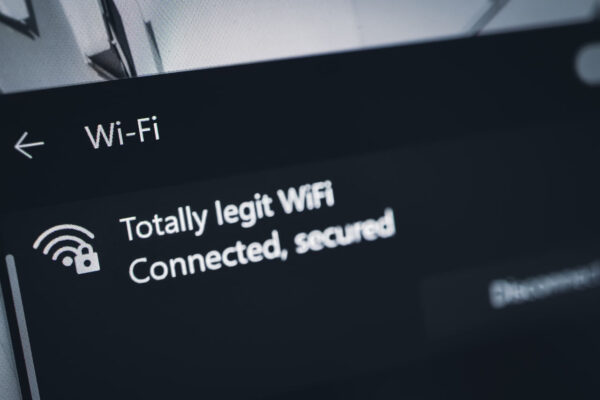In today’s fast-paced digital age, a reliable and high-speed internet connection is essential for both work and leisure activities. The two most common methods of connecting to the internet are through Wi-Fi and Ethernet. Each has its own set of advantages and disadvantages, and choosing between them can be a crucial decision. In this comprehensive guide, we’ll delve into the world of Wi-Fi vs. Ethernet, exploring their differences, use cases, and helping you make an informed choice.
Wi-Fi vs. Ethernet: Which is Better?

Wi-Fi: Unleashing Wireless Freedom
Wi-Fi, short for Wireless Fidelity, is a technology that enables devices to connect to the internet without physical cables. It has become ubiquitous in homes and businesses, offering convenience and flexibility. Here’s a closer look at Wi-Fi’s advantages and disadvantages.
Advantages of Wi-Fi
- Wireless Convenience: Wi-Fi liberates you from the constraints of physical cables, allowing you to connect devices from anywhere within the network’s range.
- Easy Installation: Setting up a Wi-Fi network is relatively simple, and most modern routers come with user-friendly interfaces.
- Multiple Device Connectivity: Wi-Fi networks can handle multiple devices simultaneously, making it ideal for homes with numerous connected gadgets.
- Mobility: With Wi-Fi, you can move freely while staying connected, which is particularly useful for smartphones and laptops.
- Scalability: Expanding a Wi-Fi network is hassle-free, as you can add more devices without the need for additional cables.
Disadvantages of Wi-Fi
- Signal Interference: Wi-Fi signals can be affected by obstacles, walls, and interference from other electronic devices, leading to signal drops or slowdowns.
- Security Concerns: Wireless networks are more susceptible to security breaches if not properly configured and secured.
- Limited Range: The range of a Wi-Fi network is limited, which may necessitate the use of range extenders or additional access points for larger spaces.
Ethernet: The Wired Connection
Ethernet, on the other hand, relies on physical cables to connect devices to the internet. It’s a tried-and-true method known for its stability and reliability. Let’s explore the pros and cons of Ethernet connectivity.
Advantages of Ethernet
- Stability: Ethernet offers a highly stable and consistent connection, free from the signal interference that can affect Wi-Fi.
- High Speed: It provides faster data transfer speeds compared to Wi-Fi, making it ideal for bandwidth-intensive tasks like online gaming and streaming.
- Low Latency: Ethernet connections typically have lower latency, reducing lag in online gaming and video conferencing.
- Enhanced Security: Wired connections are less vulnerable to hacking, making Ethernet a secure choice for sensitive data transfer.
- No Signal Drop: Ethernet connections do not suffer from signal drops or dead zones, ensuring a constant and reliable connection.
Disadvantages of Ethernet
- Limited Mobility: Ethernet cables restrict mobility since devices must be physically connected to the router or modem.
- Installation Complexity: Setting up Ethernet cables can be more challenging, especially in existing structures where wiring may need to be installed.
- Inflexibility: Ethernet connections are fixed, which means devices cannot move freely within the network.
FAQs
Yes, most modern devices allow you to use both Wi-Fi and Ethernet simultaneously. This can be useful for redundancy or load balancing.
Ethernet is generally preferred for online gaming due to its stability and low latency. However, Wi-Fi can also work well if you have a strong and reliable connection.
Wi-Fi does consume more power than Ethernet, so if power efficiency is a concern, Ethernet may be a better choice.
Yes, you can switch between Wi-Fi and Ethernet on the same device based on your preferences or specific needs.
There is no conclusive evidence of health risks associated with either Wi-Fi or Ethernet technologies. Both are considered safe for everyday use.
Yes, you can enhance Wi-Fi security by using strong passwords, enabling encryption, and regularly updating your router’s firmware.
Conclusion
In the battle of Wi-Fi vs. Ethernet, there is no one-size-fits-all answer. Your choice should be based on your specific needs, preferences, and the demands of your internet-connected devices. Wi-Fi offers flexibility and convenience, while Ethernet provides stability and reliability.
Consider your priorities, and remember that you can even use both simultaneously for the best of both worlds.
Ultimately, the choice is yours, and both technologies have their place in the modern digital landscape.